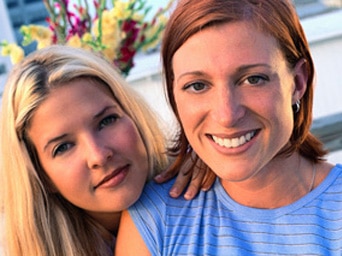 by Kassmin Williams, VA Boston Healthcare System, Public Affairs Intern
by Kassmin Williams, VA Boston Healthcare System, Public Affairs Intern
They were prepared for war. They were prepared to die for their country. But female Veterans agree they weren’t prepared to come home and fight a different battle — addiction to illegal drugs and alcohol.
Some of this country’s bravest men and women who volunteered to defend America in a time of war have come home wounded — physically and mentally — and are turning to illicit drugs and alcohol as they adjust to normal life, according to Veterans, health experts and advocates.
Addiction does not discriminate against gender, socioeconomic status or race, and is equally at home with women as men.
Overcoming addiction to anything, at any time, can be challenging especially when it’s used as an escape mechanism from constant pain and heavy emotions. To many of its victims, it seems the only solution to their problem and the only way to cope with everyday life.
VA Boston Healthcare System staff, earnestly working with women Veterans diagnosed with Post Traumatic Stress Disorder and substance abuse, saw the need for a program that would make women feel as safe as possible, while providing the most comfort for them during treatment. VA Boston wrote a grant requesting funding from the VA Central Office to launch The Women’s Integrated Treatment and Recovery Program, and the doors opened in October 2007, in Brockton, MA.
Two-thirds of the women coming into the program have experienced a Military Sexual Trauma while serving and most were assaulted by men, often their military superiors or fellow unit members. Surviving in this environment calls for the victim to separate or bury their feelings for the sake of the mission. Therefore, most women attending the program agree that they would not be able to express themselves as freely in groups, if men were present.
As part of the 11-week residential program, the women participate in a variety of treatment activities including group therapy, therapeutic recreation, medication management and community living. The women spend 20 hours per week in daily group learning alternate coping methods for use in everyday life. The groups touch upon a variety of topics from body awareness to managing emotions. Written homework assignments are given daily that describe real life stressful scenarios and women have to respond, using the techniques learned in the training and from each other.
Besides treatment activities and groups, the women are required to participate in a recovery activity such as the traditional 12 step activity. The women are encouraged to try spiritual recovery through church or a spiritual practice of their choosing, to create their own recovery groups and explore other recovery activities that may be more suitable. Establishing a support network outside of the program prepares the women for transition back into society, equipping them with tools for dealing with daily stressors.
“Our greatest success stories are women who come to us homeless and hopeless, often in really terrible environments, involving drugs and violence, thinking they can get fixed up in 11 weeks here, leave their PTSD here and substance abuse behind,” Sharon Baker, clinical director, said, “Here they discover that it takes a much longer time and a much deeper commitment to turn their lives around.”
There are a number of success stories of women who leave the program and go to other VA programs such as REACH, the co-ed substance abuse program in Brockton and/or TRUST, located in Jamaica Plain, a women’s transitional residence utilizing support and treatment prior to entering the community. Some get an apartment through HUD/VASH, a rental assistance program for homeless Veterans. Women work their way through each program receiving the treatment and support they need to go back out into the community and lead a healthy life.
For more information on VA Boston’s Women’s Integrated Treatment & Recovery Program, call (774)-826-1833
ATTENTION READERS
We See The World From All Sides and Want YOU To Be Fully InformedIn fact, intentional disinformation is a disgraceful scourge in media today. So to assuage any possible errant incorrect information posted herein, we strongly encourage you to seek corroboration from other non-VT sources before forming an educated opinion.
About VT - Policies & Disclosures - Comment Policy



